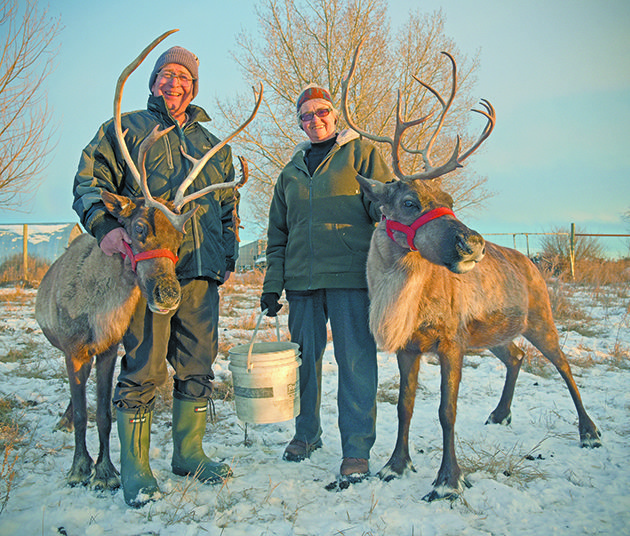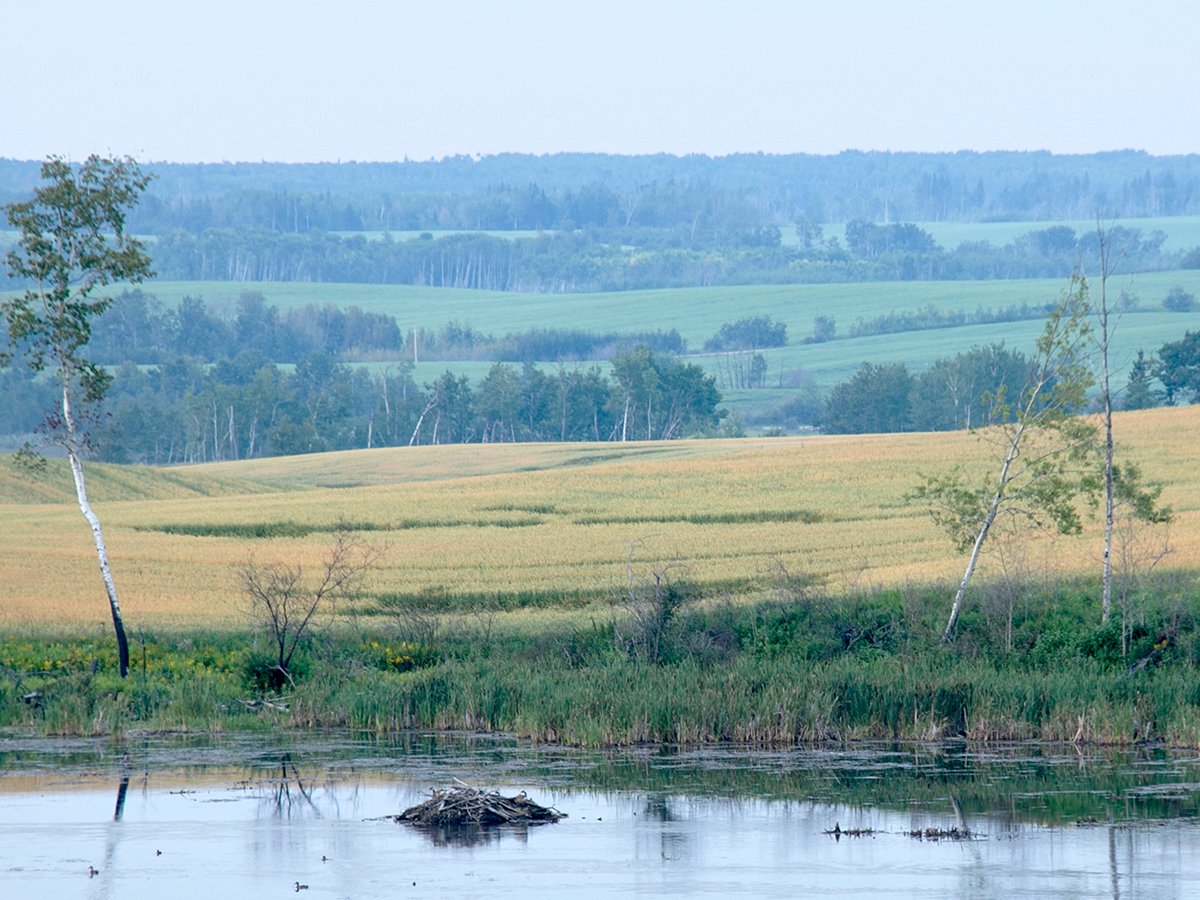Couple educates people about reindeer by taking their animals to special events, schools and seniors’ homes
WADENA, Sask. — Elaine and Wes Wirtz remember a time when people thought reindeer did not exist.
“Fifteen years ago, there were still a number of people who thought that reindeer actually were a mythical creature. There were a significant number of adults who didn’t believe us that they were reindeer, but that has changed,” said Elaine.
She credits social media’s far-reaching ability to help educate people about the antlered animals.
“Every time we take them out, it just flashes on Facebook all over. They take pictures and put them on their Facebook page,” she said.
The couple operates South Tundra Reindeer, a small farm on the outskirts of Wadena, Sask.
They recently walked Trinta, one of their yearlings, from the farm to downtown Wadena during a night of Christmas shopping on main street.
Children and adults flocked around, photographed and petted the animals and some even gave a hug.

For years, they have taken their reindeer to various activities around the province, including museum events, school classrooms and senior citizen residences.
Their farmland has been in the family since 1908 when Wes’s grandfather migrated north from Chicago while working for the railroad.
He suffered from asthma and an overnight stop in Wadena provided his first decent night’s sleep in years. Soon after, he bought five quarters of land.
Wes and Elaine purchased several quarters of family land in the 1980s, where they produced grain and cattle while they also worked off farm.
Wes taught school and Elaine was a physiotherapist.
Their four children had already left home when in 1999 Elaine noticed a newspaper ad about reindeer for sale.
Read Also

Intergenerational rollover rules can help succession plans
One of the most significant concerns in succession planning for farmers is the tax bill that can come with passing the farm to the next generation.
Like many, they thought there was money to be made in alternative livestock markets.
But by the time they had stock for sale, the markets had collapsed, in part due to the regulations surrounding chronic wasting disease.
“Reindeer farming really never went anywhere and part of the reason for that was the CWD and the elk closed down all the markets to the States,” said Elaine.
Added Wes: “That’s really what shut everything down.”
They were invested in the animals so they kept them.
“I guess the bottom line is we’re animal people and we’ve come to enjoy the reindeer,” said Elaine.
“On our farm, they became pets,” said Wes.
They are among the few reindeer producers left in the province. Currently, interest has been shown from game farms.
“The trophy ranches are coming to us saying ‘when are you going to have some because now people are interested,’ ” said Elaine. “You can’t say that’s a market you’d want to go into because it takes four to five years to grow a bull big enough to be in a trophy ranch.”
They enjoy reindeer because of the animals’ personality.
“They engage you and respond to you. A reindeer will come up and look at you right in the eye — what are you going to feed me.”
She said they’re intelligent, co-operative and train well.
“You can take them into buildings without too much difficulty. I think that’s more because of the centuries of domestication,” said Elaine.
In parts of Eastern Europe, the animals are produced for meat, fur, milk and transportation.
Like their larger cousins, the caribou, reindeer are divided into two groups: tundra and woodland. Their name comes from an Old Norse word, hreinin, which means horned animal.
Their connection with Christmas grew from Clement Moor’s poem, A Visit from Saint Nicholas (’Twas the Night Before Christmas) in 1823.
Elaine thinks some of the confusion surrounding reindeer may come from generations of misinformation. The reindeer pulling Santa’s sled were often much larger than they are in real life.
Elaine and Wes tread lightly with children and their Christmas myths.
“No, this isn’t one of Santa’s reindeer, it’s one that’s on the farm. We might say that they’re in training yet,” said Elaine.
“I personally don’t like to promote them as Santa’s reindeer. Santa is a mythical figure and these are very real.”















